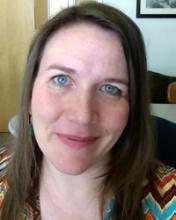Chances are, sometime in your life, you’ll need an antibiotic.
But did you know that bacteria are evolving antibiotic resistance so quickly – and pharmaceutical companies are not inventing new antibiotics – that soon, there will not be any that are effective?
 It’s a good thing UC Merced Professor Miriam Barlow, who has spent the past 14 years researching antibiotic resistance, is making her expertise available through a public-service program.
It’s a good thing UC Merced Professor Miriam Barlow, who has spent the past 14 years researching antibiotic resistance, is making her expertise available through a public-service program.
Project Protect, an online program for distributing information, is on Facebook and Twitter and is dedicated to sharing information about antibiotic resistance and how to stay healthy. People can submit questions, and Barlow will answer them or she and her students will refer people to other sources of information.
This is another example of UC Merced’s research having direct implications on the well-being of people in the region, state, nation and world.
The Facebook page is only a couple of months old, but Barlow started blogging about her research several years ago, and people have been contacting her for help since she started.
“They need help figuring out how to get better from infections,” she said.
One woman wrote to Barlow just two days before she was scheduled to have her foot amputated because of a serious infection. Barlow – who is not a medical doctor – suggested she ask her doctor immediately for a different antibiotic.
The woman took Barlow’s advice, and two days later was improved enough that she did not need surgery at all.
While the discovery of penicillin remains one of science’s greatest breakthroughs, in the years since its discovery several problems have developed:
- Antibiotics are over prescribed, or given for illness they cannot cure, like viral infections.
- People are often given antibiotics that are not right for the infections they have.
- Antibiotics can make people sick.
“They kill all the bacteria in your gut, but that allows other bacteria to invade,” Barlow said.
People are always taught to take the whole course of antibiotics as prescribed, but sometimes they don’t realize they should stop taking the medicine if they are showing signs of allergic or toxic reactions.
As an evolutionary biologist, Barlow said she chose this field for study because it’s one of the few cases where you can actually see evolution happening. Bacteria can become resistant to antibiotics in two to three years.
“We can even predict how bacteria will adapt to become more resistant,” Barlow said. The work she and colleagues like Professors Suzanne Sindi and Wei-Chun Chin and School of Natural Sciences Dean Juan Meza are doing has broad implications everywhere. Infections are common all over the world and to all groups of people.
Barlow urges people to stay healthy and do what they can to avoid infections – including washing hands thoroughly and learning how to properly clean and dress a wound. Also, be a responsible patient. Communicate with your doctor to make sure that you really need an antibiotic, and ask your pharmacist about side effects so you know if a medication is starting to do more harm than good.
“Project Protect is all about patient education,” Barlow said. “It’s about making sure people know what should be happening to them.”

